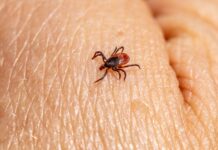When many people think of the word “ocean”, the first things that come to mind might include nature, beach vacations, white sand, and frozen drinks. Most people probably don’t think “landfill”.
Charlie Trick, professor of aquatic sciences and microbial ecology at Western University, studies how toxins move from the environment into our food sources, like fish and shellfish.
“We are asking a lot of our environment and putting a lot of materials in our environment, and it’s going to have an impact on our health,” says Trick. “If it’s not now, it will be certainly in the future.”
His research on the phytoplankton that live along the North American coast of the Pacific Ocean is revealing that humans are changing the chemistry of the environment to such an extent that we are inducing toxins to get into a food source that we are increasingly dependent upon.
Aside from the waste that our daily activities are putting into our oceans, even well-intentioned and purposeful human interventions have potential to go awry. Trick’s research has also been able to predict one of the consequences of ocean fertilization, a proposed method to reduce atmospheric carbon dioxide. By dumping iron into the ocean, scientists hoped to increase the number of carbon capturing phytoplankton in the surface water.
Trick’s research showed that this strategy would have a very negative impact on our health. Increasing the phytoplankton population would also increase the numbers of those species that produce a neurotoxin called domoic acid, which accumulates in shellfish and is poisonous to birds and mammals, including humans.
Trick’s data are now being used to help coastal communities make decisions about their environment to help safeguard their food sources and their health. It is also being used to make predictive models of what will happen to our oceans around the world.
“There is an enormous amount of new discovery that can occur on any single day,” adds Trick. “As a scientist, I’ve gone from looking at the true basic science of the marine environment, as an oceanographer, to looking at the relationship with humans. So I serve as a gatekeeper, as an individual that can take information and help shape communities and how communities make decisions about their environment.”




































